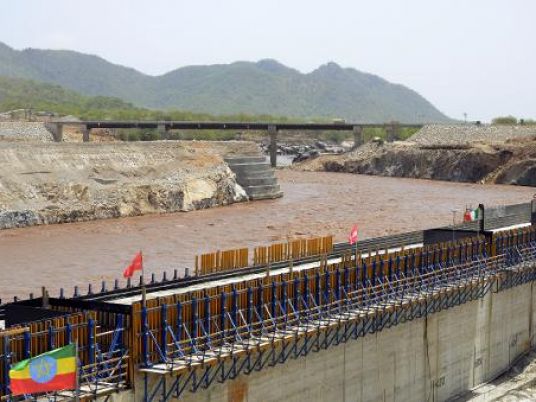
The tenth round of Renaissance Dam negotiations, set to begin Friday in Khartoum, has already raised controversy among Egyptian and Sudanese officials.
Although Sudanese sources said Khartoum will not use the Nile water as a weapon against Egypt after Sudanese nationals were arrested in Cairo on charges of smuggling foreign currencies, other sources said the recent tension between the two countries will cast a shadow over the negotiations.
This coincides with the visit of Sudanese President Omar al-Bashir to the border region of Ethiopia to participate in celebrations for Ethiopia's National Day.
Sudanese sources also said that Israel has built a center 200 km from the Ethiopian-Sudanese border in Gondar to suggest water and agricultural projects that the Ethiopian government can implement to benefit from the Renaissance Dam, which will store 74 billion cubic meters of water when it is completed.
Assem Fath al-Rahman, the advisor of the Sudanese Future Studies Center, said Egypt should confront Israeli ambitions in the Nile Basin countries by using its expertise to implement projects in Ethiopia and prove that it is not only interested in its water quota.
Water Resources and Irrigation Minister Hossam Moghazi said Egypt seeks the consensus of all parties to resolve differences over the dam, adding that Egypt will push for conducting the technical studies in accordance with the agreement of principles signed by the leaders of the three countries in April.
He also said that he is visiting Uganda on Monday to sign a US$12 million contract for the Arab Contractors Company to remove the effects of the floods in the western part of the country, pointing out that Egypt supports projects that serve the development of Nile Basin countries.
For his part, Sudanese Water Resources and Electricity Minister Moataz Moussa said his country respects all international conventions and treaties governing the Nile water, including the 1959 agreement signed between Egypt and Sudan.
Edited translation from Al-Masry Al-Youm




